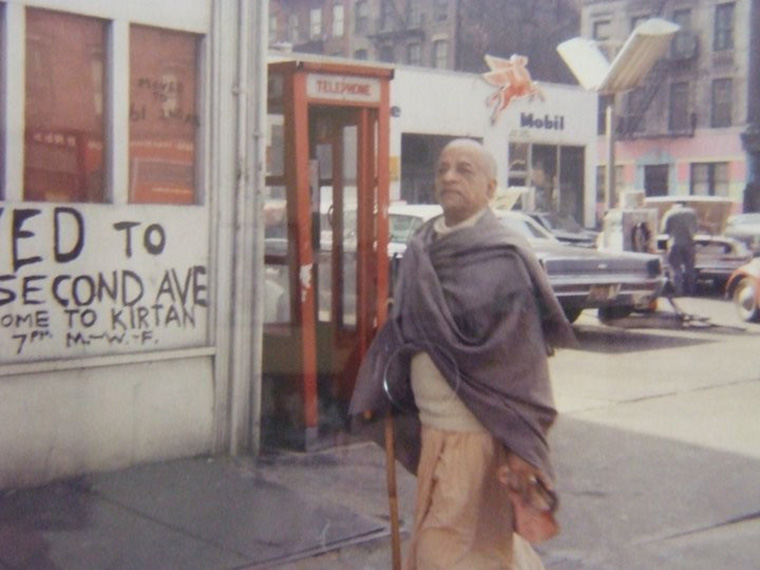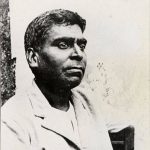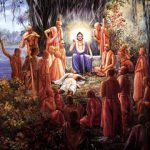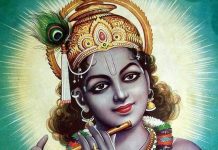 On October 20, 1956, Srila Prabhupada described the qualities that he wished to invoke in the members of his new society, The League of Devotees:
On October 20, 1956, Srila Prabhupada described the qualities that he wished to invoke in the members of his new society, The League of Devotees:
“To evoke the qualities of ‘goodness’ particularly (Satwa-guna) in every member of the ‘League’ individually by the process of spiritual initiation (Diksha) by establishing him in the status of a qualified Brahmin (good and intellectual man) on the basis of truthfulness, forgiveness, equality, tolerance, education, purity, knowledge (specific and general) and faith in the transcendental service of Godhead.”
From the above description, we can understand that Srila Prabhupada wanted to create devotees of first-class character and behavior. He particularly mentioned the brahminical qualities of goodness as outlined in the Bhagavad-gita (18.42). These qualities are possessed by what Prabhupada called a “good and intellectual man.” In his purport to Srimad-Bhagavatam (5.18.12), Srila Prabhupada listed the 26 qualities of a devotee in the following manner:
“Sri Krsnadasa Kaviraja, the author of Caitanya-caritamrta, says that all good qualities become manifest in the body of a Vaisnava and that only by the presence of these good qualities can one distinguish a Vaisnava form a non-Vaisnava. Krsnadasa Kaviraja lists the twenty-six good qualities of a Vaisnava:
(1) He is very kind to everyone
(2) He does not make anyone his enemy
(3) He is truthful
(4) He is equal to everyone
(5) No one can find any fault in him
(6) He is magnanimous
(7) He is mild
(8) He is always clean
(9) He is without possessions
(10) He works for everyone’s benefit
(11) He is very peaceful
(12) He is always surrendered to Krsna
(13) He has no material desires
(14) He is very meek
(15) He is steady
(16) He controls his senses
(17) He does not eat more than required
(18) He is not influenced by the Lord’s illusory energy
(19) He offers respect to everyone
(20) He does not desire any respect for himself
(21) He is very grave
(22) He is merciful
(23) He is friendly
(24) He is poetic
(25) He is expert
(26) He is silent”
Here we have a perfect description of the completely surrendered devotee. With such definitive information and criteria available, there is no room for speculating as to who is truly surrendered, and who is not. The good qualities of the demigods are automatically displayed in the character of a pure devotee. It’s not that he says one thing and does another; so there is no question of acting or posing in devotional service.
This morning I passed a mother and child on the street. I heard the mother say to the little girl, “I don’t want you to see me smoking.” She then stood behind a door and puffed on a cigarette, while shielding herself from the view of her innocent daughter. Unbeknownst to her, the mother had already given away her secret and had taught the child a good lesson in hypocrisy. This type of confused logic has been condemned by Srila Prabhupada in his purport to Bhagavad-gita As It Is (3.7):
“A sincere sweeper in the street is far better than the charlatan meditator who meditates only for the sake of making a living.”
The term, “No Hypocrisy Allowed” has been aptly utilized by the Bhaktivedanta Tape Ministry for the title of one of Srila Prabhupada’s lectures on the subject of honesty in Krsna consciousness. There is no sense in trying to imitate a pure devotee of Krsna because if one is not genuinely situated on that platform he will ultimately fall down to the material plane. The self-realized acarya is therefore worshipable by all conditioned souls, since he has achieved qualitative oneness with the Supreme. In the eleventh Canto of Srimad-Bhagavatam, Lord Krsna tells Uddhava:
“One should know the acarya as Myself and never disrespect him in any way. One should not envy him, thinking him an ordinary man, for he is the representative of the demigods.” (S.B. 11.17.27)
As a pure representative of the Supreme Lord, Srila Prabhupada never accepted anything for himself. He did not enjoy the facilities offered to him by his disciples and followers. Those who had the good fortune to serve or spend time with Srila Prabhupada all attest to this fact. He was cent per cent engaged in the service of Krsna twenty-four hours a day. It was his total surrender and dedication to the Lord which inspired so much love and adoration in the hearts of his followers. Prabhupada not only talked the talk, but he walked the walk. Therefore he was — and always will be — so endearing to godly persons everywhere.
All glories to Srila Prabhupada.











Harekrishna Prabhu pranam good to learn
„The self-realized acarya is therefore worshipable by all conditioned souls, since he has achieved qualitative oneness with the Supreme. In the eleventh Canto of Srimad-Bhagavatam, Lord Krsna tells Uddhava: “One should know the acarya as Myself and never disrespect him in any way. One should not envy him, thinking him an ordinary man, for he is the representative of the demigods.” (S.B. 11.17.27)“
May all souls attain these divine qualities! 🙂
„The self-realized acarya is therefore worshipable by all conditioned souls, since he has achieved qualitative oneness with the Supreme. In the eleventh Canto of Srimad-Bhagavatam, Lord Krsna tells Uddhava: “One should know the acarya as Myself and never disrespect him in any way. One should not envy him, thinking him an ordinary man, for he is the representative of the demigods.” (S.B. 11.17.27)“
May all souls attain all these qualities 🙂